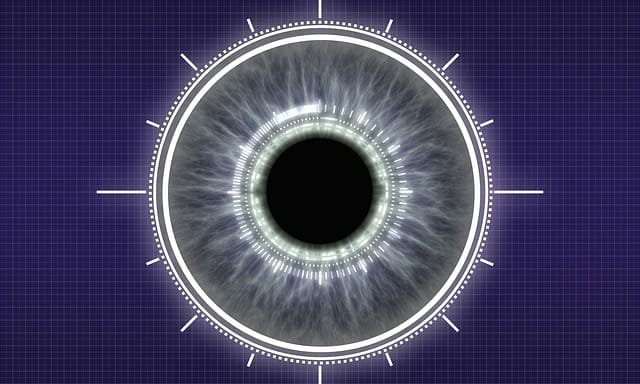This is a guest contribution. This Website may or may not agree with the views/opinions expressed in it.
By: Greg Kahn
It wasn’t long ago that necessity was the Mother of Invention. Today, it is desire, and there is no doubt that with every new app, device, platform and security technology introduced, consumers will eventually need to decide whether to opt for privacy over convenience.
Consider Amazon’s face-recognition technology “Rekognition,” which was introduced to law enforcement agencies approximately two years ago as a convenient time- and cost-saving solution for identifying suspects across multiple databases. Now, it is at the center of a probe brought about by a report from the American Civil Liberties Union (ACLU) stating it falsely linked the faces of 27 New England professional athletes to mugshots in a criminal database.
Claims such as these are ramping up across the nation along with litigation that underscores the flaws of the emerging technology as well as its potential for abuse and misuse—all of which beg the ethical question of the US Government’s role in establishing regulations, which many say—including the largest tech companies—it’s about time.
Nearly every established industry is beholden to at least some government oversight. Finance, healthcare, food and beverage, appliances, toys and utilities are just a few. And in good faith, Americans have generally accepted government involvement, so long as it serves to protect them from harm and ensure their constitutional rights are upheld.
But we are entering uncharted territory and a new era where biometrics, if left unregulated, could infringe on our right to privacy or worse, increase our vulnerability to hackers whose deepfakes have become more realistic than ever. In June 2019, an Instagram account, Bill Posters, uploaded a deepfake video of Facebook’s CEO Mark Zuckerberg delivering a disturbing Big Brother message. As much an example as it is a warning, it serves to remind us of our personal responsibility for the information we choose to digest, believe and share. And that burden of responsibility is about to get exponentially heavier.

With or without public endorsement, there is little disagreement that regulations are needed in the US. It is not unusual for a burgeoning new industry such as artificial intelligence (AI) to reach a tipping point where the government must intervene for the safety and well-being of consumers and citizens. Though automobiles have been on American roads for more than one hundred years, it was only in 1970 the government stepped in with the National Highway Traffic Safety Administration (NHTSA) to regulate the safety of motor vehicles and related equipment. Even then, it took another 15 years before seat belt laws were enforced in all 50 states except New Hampshire.
Allied Market Research expects the facial recognition market to grow to US $9.6 billion by 2022, and many industries are counting on it. Most of the major car companies are investing in it to create the cockpit of the future, where a driver’s dashboard will be able to identify who is behind the wheel, as well as their physical state — drowsiness, inebriation or a sudden health event that may cause impairment — and kick into autopilot if necessary. But that’s just a fragment of the market. Tech companies are working to perfect face recognition across the board to advance the way humans live, work, play and think.
In the US, face identification has been in use at least since 1958, when photographs of individuals first appeared on California driver licenses. Today, it has evolved to assist with solving crimes, finding missing persons and protecting citizens not only in the U.S. but across the globe, from The UK to India, where the National Automated Facial Recognition System (AFRS) is installing the world’s largest facial-recognition system to modernize its police force. But in no other country has facial recognition become more commonplace or ubiquitous than China, which has the world’s biggest surveillance system comprised of millions of cameras that police utilize to scan public spaces for individuals who may pose a threat to society.
While critics point to China as a cautionary tale of Big Brother watching 24/7, face-recognition technology has been polarizing here in the US as well. A 2019 Pew Research report indicates that more than half of American adults (56 percent) trust the government — law enforcement in particular—to use face recognition responsibly, with 59 percent approving the use of the technology to assess security threats in public spaces. When it comes to private enterprises, marketers and advertisers, however, public trust wanes significantly, with only 36 percent trusting companies and 18 percent trusting advertisers to remain transparent.
Like many innovative technologies and breakthroughs, such as the Internet, smartphones, semi-autonomous vehicles and various forms of AI, the biometrics technology using a person’s unique facial features to authenticate identity unarguably holds tremendous potential to simplify, secure and improve nearly every aspect of our lives, from banking and retail to healthcare and hospitality. As smartphones become the favored vehicle for the delivery of apps and tools that utilize face recognition, numbers provide concrete evidence that it isn’t going away anytime soon. While Counterpoint Research estimates that by 2020 more than one billion smartphones will feature some form of face unlock solution, apps like Beard Booth, Face Swap, Face Traits, Face In and Truthify, among many others, are quickly saturating the market for their entertainment, creativity and information value.
What the future holds is still uncertain, but we should brace ourselves for some significant bumps over the next decade at least, particularly as lawmakers, tech companies, private enterprises, consumers and civil rights groups are likely to view the economical and societal benefits of face-recognition technology from very different points of view.
About Author: Greg Kahn

Greg Kahn is president and CEO of the Internet of Things Consortium (IoTC) and one of the most connected and engaged members of the Internet of Things (IoT) community. At the helm of IoTC NEXT: The Connected Future Summit, a first-of-its-kind industry event launched in 2019 in New York City, he is uniting foremost brand executives, leading technologists, investors and top media to address the challenges of a connected world.
With more than 20 years of experience working in the media and technology industries at well-established companies such as Viacom, Publicis Groupe and Omnicom, Greg established IoTC in 2016, using his influence and remarkable network to build a premier IoT group focused on driving the industry forward. Today, the pre-eminent business development association serves dozens of companies within the IoT space and covers five core areas of IoT including smart cities, home automation, wearables, connected cars and retail transformation.
Prior to IoTC, Greg served as Chief Business Development Officer for Meredith Corporation, the leading media and marketing company reaching 185 million American consumers every month. A top IoT advisor to startups, he is a regular keynote speaker and moderator at industry-leading events such as the Consumer Electronics Show, Mobile World Congress and Internet of Things World and has been named one of the Top IoT influencers by Huffington Post, Inc. Magazine, Hewlett Packard Enterprise and The Internet of Business.
A graduate of the University of Pennsylvania, Greg earned his MBA from the UCLA Anderson School of Management.
Image by Pete Linforth from Pixabay
Image by Garik Barseghyan from Pixabay
